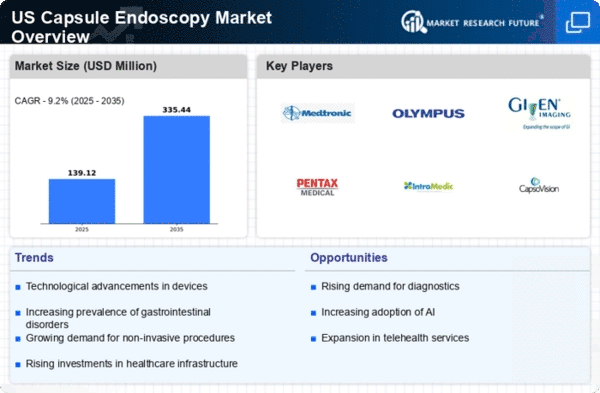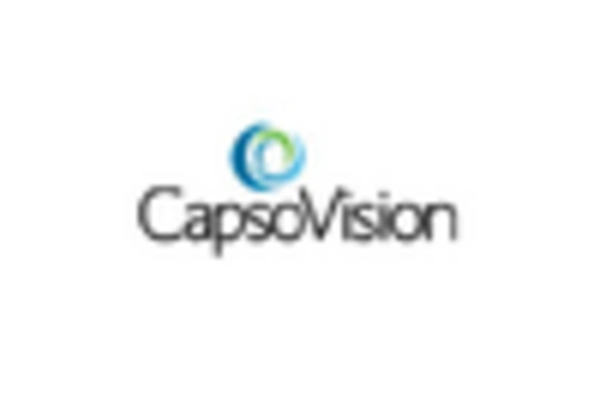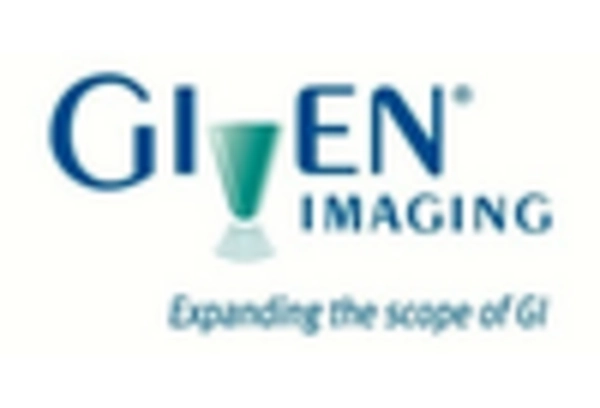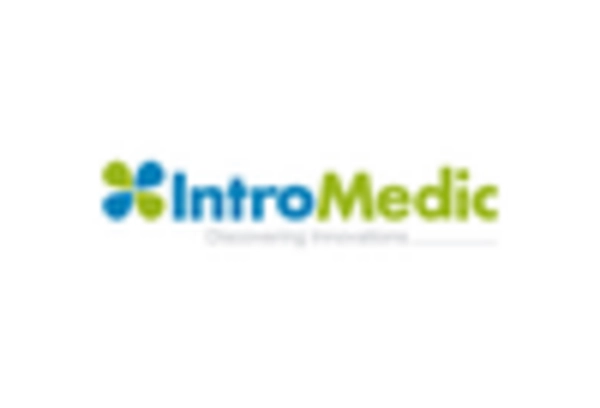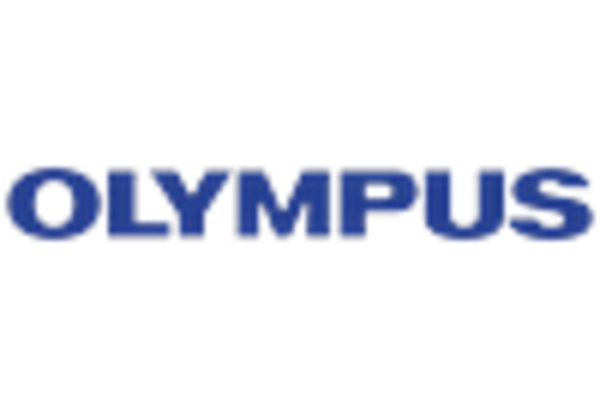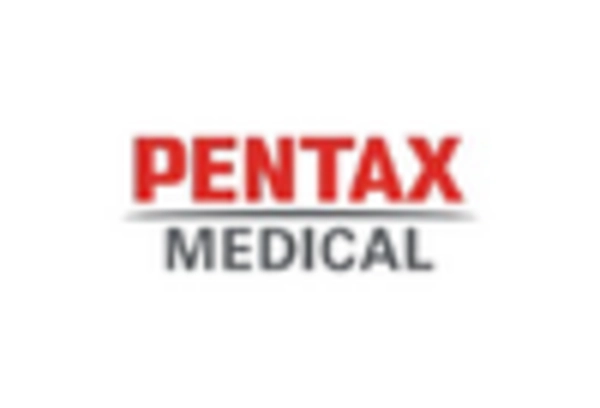Rising Healthcare Expenditure in the US
The increase in healthcare expenditure in the US is positively impacting the capsule endoscopy market. As healthcare budgets expand, there is a greater allocation of funds towards advanced diagnostic technologies. The US healthcare system is projected to reach approximately $4.3 trillion by 2025, with a significant portion dedicated to innovative medical devices. This financial commitment allows for the adoption of cutting-edge technologies, including capsule endoscopy, which offers efficient and effective diagnostic solutions. Additionally, as insurance coverage for these procedures improves, more patients are likely to seek capsule endoscopy as a viable option for gastrointestinal evaluation. The financial support for advanced medical technologies is expected to drive growth in the capsule endoscopy market, making it more accessible to a broader patient population.
Technological Innovations in Capsule Design
Technological advancements in capsule design are significantly influencing the capsule endoscopy market. Innovations such as improved imaging capabilities, enhanced battery life, and real-time data transmission are making these devices more effective and user-friendly. For instance, the introduction of high-definition cameras and advanced wireless technology allows for clearer images and faster data processing. These enhancements not only improve diagnostic accuracy but also increase patient comfort and compliance. As manufacturers continue to invest in research and development, the market is likely to see a surge in new products that cater to diverse clinical needs. The integration of artificial intelligence in image analysis may further streamline the diagnostic process, making capsule endoscopy an increasingly attractive option for healthcare providers.
Regulatory Support for Innovative Medical Devices
Regulatory support for innovative medical devices is a vital driver for the capsule endoscopy market. The US Food and Drug Administration (FDA) has established streamlined pathways for the approval of new medical technologies, encouraging manufacturers to develop and introduce advanced capsule endoscopy systems. This regulatory environment fosters innovation and ensures that patients have access to the latest diagnostic tools. the FDA's commitment to promoting safe and effective medical devices is likely to enhance growth potential. Furthermore, as regulatory bodies continue to recognize the importance of non-invasive diagnostic methods, the approval process for capsule endoscopy devices may become even more efficient. This supportive framework is expected to attract investment in the capsule endoscopy market, leading to the development of next-generation products that meet evolving clinical needs.
Increasing Prevalence of Gastrointestinal Disorders
The rising incidence of gastrointestinal disorders in the US is a primary driver for the capsule endoscopy market. Conditions such as Crohn's disease, ulcerative colitis, and gastrointestinal bleeding are becoming more common, necessitating advanced diagnostic tools. According to recent data, approximately 1.6 million Americans suffer from inflammatory bowel diseases, which often require thorough examination of the small intestine. Capsule endoscopy offers a non-invasive solution, allowing for detailed visualization of the gastrointestinal tract. This method is particularly beneficial for patients who may not tolerate traditional endoscopic procedures. As awareness of these disorders increases, healthcare providers are likely to adopt capsule endoscopy more widely, thereby expanding the market. The growing patient population seeking effective diagnostic options is expected to propel the capsule endoscopy market forward in the coming years.
Growing Awareness and Acceptance Among Healthcare Professionals
The growing awareness and acceptance of capsule endoscopy among healthcare professionals is a crucial driver for the market. As more physicians recognize the benefits of this non-invasive diagnostic tool, its adoption is likely to increase. Educational initiatives and training programs are being implemented to familiarize healthcare providers with the technology and its applications. This shift in perception is supported by clinical studies demonstrating the efficacy of capsule endoscopy in diagnosing small bowel disorders. Furthermore, as healthcare systems emphasize patient-centered care, the demand for less invasive procedures is expected to rise. This trend may lead to an increase in referrals for capsule endoscopy, thereby boosting the market. The collaboration between manufacturers and medical institutions to promote the technology is also anticipated to enhance its visibility and acceptance.


